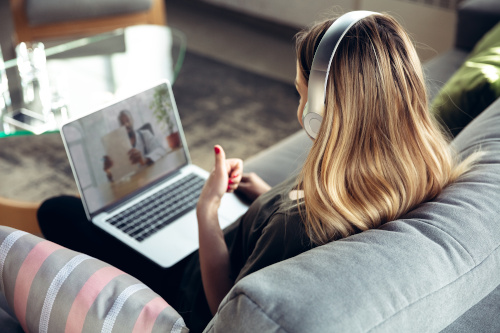Coming out of the COVID-19 pandemic, some parents of children enrolled in public schools have made, or are considering making, moves to alternative modes of education. Private schools, parochial schools, and homeschooling have all reported higher interest over the past year, and while enrollment data is not yet solid enough to officially call it a trend, it appears that some shifts away from public schools will occur in the next year.
Much of this stems from the disruption of the pandemic and the flexibility that private schools had to bring students back to the classroom. A recent poll by Education Next found that the parents of children enrolled in a private school were more likely to be “very satisfied” with their educational experience this year than parents of children in public or charter schools. In March 2021, the U.S. Census Bureau reported that 11.1 percent of households with school-age children reported homeschooling, double the prior year’s figure.
Serving students with disabilities
Whenever families shift from public education into alternative modes of education, there is a particular need to pay attention to services for students with disabilities. As a primer for those not steeped in the rules of special education related services, let’s cover a few important acronyms: IDEA, FAPE and LEA. Services for students with special needs are mandated by the Individuals with Disabilities Education Act (IDEA), a federal law that requires each state to ensure that a free appropriate public education (FAPE) is available to all eligible children with disabilities. This education is provided by the Local Education Agency (LEA), which is the public school system where the child resides.
When a parent chooses instead to enroll their child in a private school, the obligations that sit with the public LEA do not transfer to their private school. These children, often referred to as “parentally placed private school children” with disabilities, are not entitled to receive the exact services they would receive if they were enrolled in the public school. But they are still entitled to equitable services. Their LEA is required to spend a proportionate amount of IDEA federal funds to provide equitable services to the child.
In some areas of the country, LEAs choose to provide those services through the public school staff, requiring parents to transport their children to their local LEA for therapy, often delivered after school hours. This can be hard on the therapist as well as the child. “You’ve already worked a full day, serving a full caseload, so adding more cases in the after school hours makes for a strenuous workload,” shares a speech-language pathologist who served public and private school students in this structure in her previous role.
In other LEAs, the responsibility lies with parents to arrange for services themselves, within cost and provider restrictions imposed by the LEA. “I was given a 400-page list of names and phone numbers of approved providers and told to call around and find people who could come to my daughter’s school and provide the services. It’s a long list, and when I started making calls I learned that many of them didn’t have the particular expertise needed to support my daughter, didn’t accept the negotiated rate from the DOE, or weren’t willing or available to come to my daughter’s school building,” shared one parent from New York City.
Teletherapy can help
Enter an alternative solution borne out of the pandemic: serving private school students via teletherapy. While the practice certainly existed prior to COVID-19, the awareness and interest of parents in receiving services for their child in the online modality, and LEAs in delivering services online, has significantly increased during COVID-19 and will continue to gain ground in a post-COVID era. There has been a significant uptick in interest from LEAs in utilizing teletherapy to cover their private service obligations. And there’s good reason.
For many LEAs, doing so ensures that they can provide consistent equitable services to these students, without unduly burdening their own staff. For parents, doing so ensures that their child will reliably receive services, without the accompanying burdens of extending their school day to get to an after-hours, offsite therapy session, and without placing the burden on the parent to call around until they find a qualified service provider, and manage the logistics with their school. For learners, the experience suits them: they are digital natives. So often we hear that students embrace the online modality, appreciating the privacy and activities that are personalized to their interests.
Most therapists and parents have experienced the benefits of online therapy service during this past year of the pandemic, and many would like to have the ability to continue with it. Opening up these processes to facilitate online alternatives gives more options to parents seeking to educate their children in alternative school systems, while still obtaining the equitable services they are entitled to receive. It can also give parents a window into their child’s world and a role in supporting their experiences. And sometimes, as kids grow, that’s the best kind of gift a parent can have.
- From the classroom to the office: What we can learn from educators entering the edtech workforce - March 9, 2023
- What if we gave every teacher a work from home day? - September 7, 2022
- Paraprofessionals: The unsung heroes of the classroom - July 27, 2022

